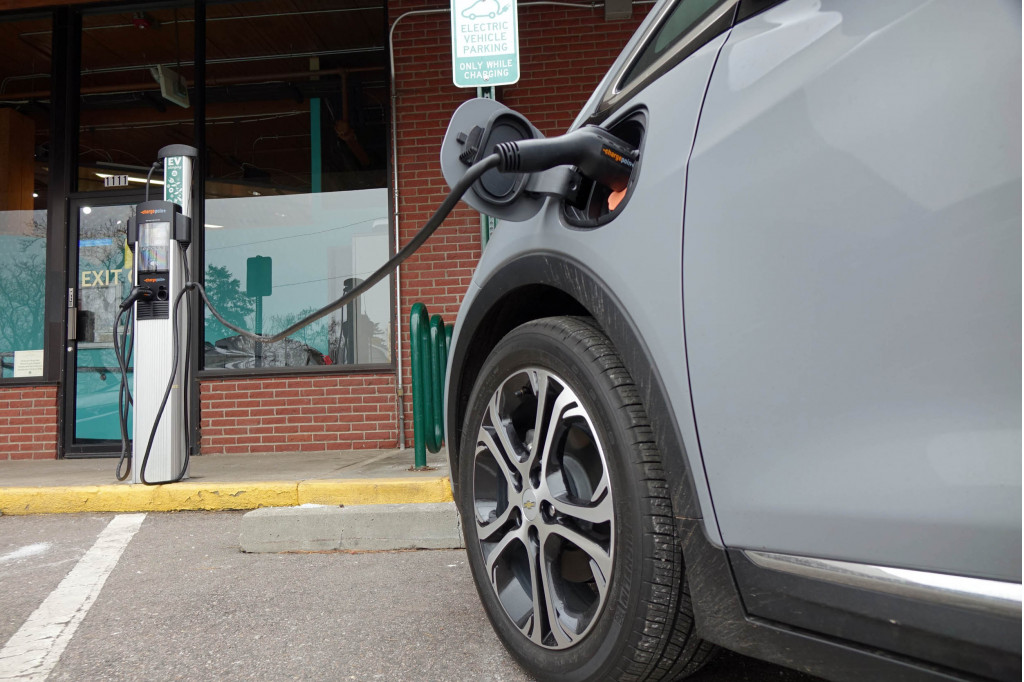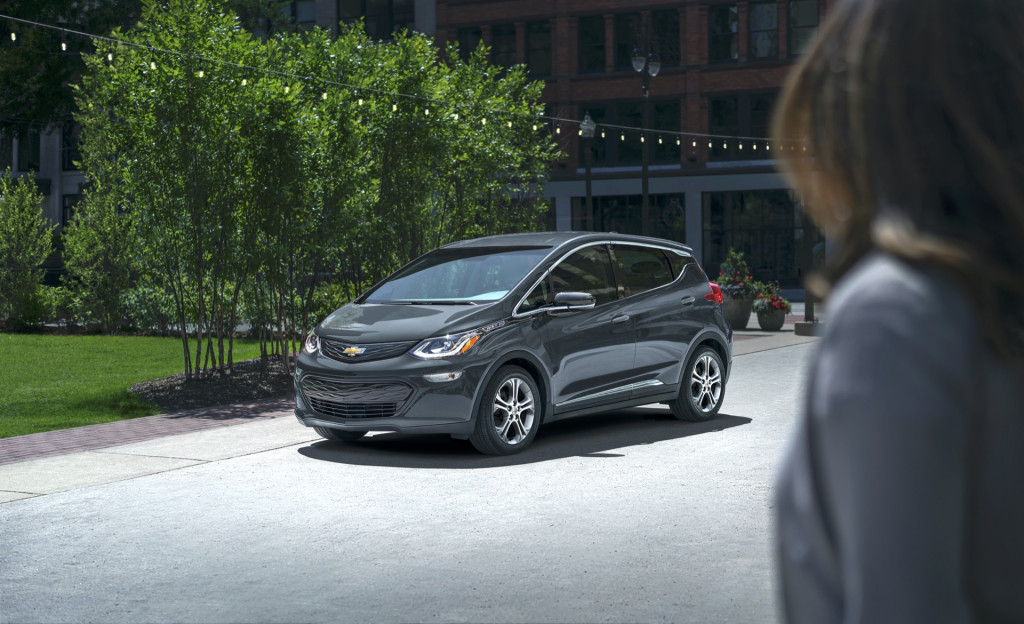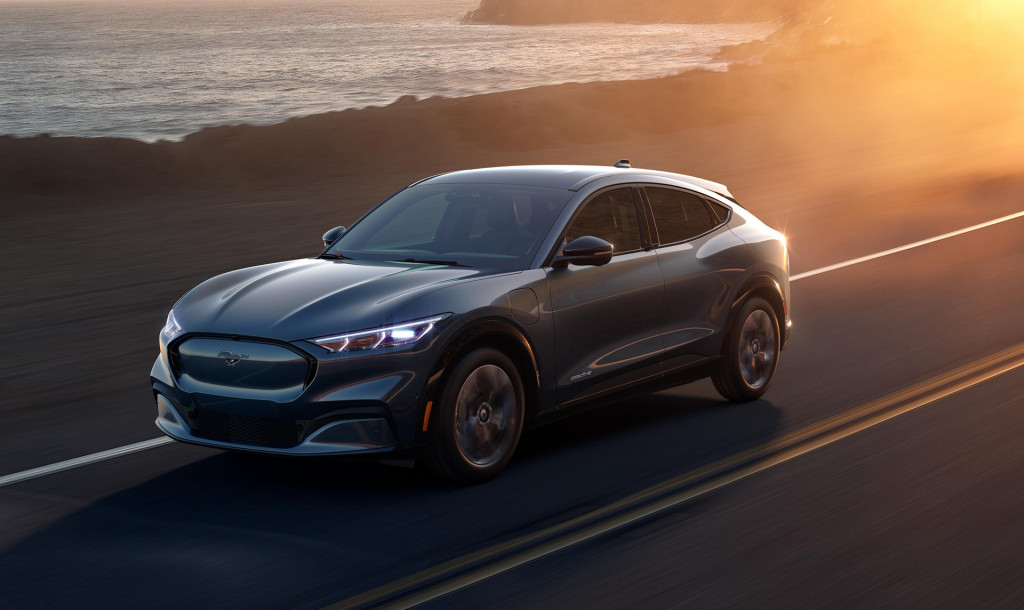The 2021 Ford Mustang Mach-E electric crossover is hitting the ground running with up to $11,000 in incentives, per CarsDirect. But how does that compare to the mass-market electric car from Ford's crosstown rival?
First off, the Mach-E qualifies for the full $7,500 federal tax credit, but that credit is unavailable to shoppers looking for a Chevrolet Bolt EV.
The tax credit phased out for General Motors starting with its confirmation of hitting the 200,000 qualifying-vehicle ceiling in October 2018. An extension was in the works last year, and was killed by the Trump administration, but it might stand another chance with the incoming Biden administration. Right now, though, Bolt EV shoppers are out of luck.

2019 Chevrolet Bolt EV at public charging station
In California, the Mach-E also qualifies for a $2,000 Clean Vehicle Rebate, as well as the $1,500 Clean Fuel Reward, a point-of-sale rebate that launches this week. The Bolt EV also qualifies for both rebates.
That brings the total amount of incentives to $11,000 for the Ford and $3,500 for the Chevy. The Mach-E starts at $43,995, bringing the effective price down to $32,995. Pricing for the 2021 Bolt EV hasn't been announced yet, but the 2020 model starts at $37,495, meaning it would cost $33,995 with these incentives (all prices include mandatory destination charges).
Granted, that's based on California state-level incentives and the federal tax credit; the picture might look somewhat different depending on where you live.

2021 Chevrolet Bolt EV
If you're looking to lease, the Bolt EV might also be a better option.
While Chevy has offered some good lease deals over the past few months, Ford only just started allowing customers to lease a Mach-E, according to CarsDirect. The best rates are 3.94% APR on a 36-month lease, or 4.19% APR on a 39-month lease. Those rates are limited to major metropolitan areas like Boston, New York, Philadelphia, Phoenix, and San Francisco, with higher rates outside those areas, the website noted. There's also no mention of a lease for the sporty GT trim level, according to CarsDirect.
It's worthwhile to compare the Mach-E and Bolt EV because they are the first (and at the moment, only) mass-market electric cars from the two largest American automakers. But they are far from alike in design.

2021 Ford Mustang Mach-E First Edition
While the Mach-E project originally started as something like a larger Bolt EV, or something closer to the Ford Escape in mission, the Mach-E now brings Mustang heritage to the table. That means more emphasis on style and performance.
At the crossover's launch last year, Ford said the base Mach-E would do 0-60 mph quicker than a base Porsche Macan, which has a manufacturer-quoted 0-60 time of 6.3 seconds. But keep in mind that the Bolt EV will reach 60 mph from a standstill in 6.5 seconds, according to Chevy.
Ford is also planning a GT Performance Edition that will do 0-60 mph in the mid-3.0-second range, but likely at a substantial price premium. The Mach-E also has something that neither the Bolt EV nor the upcoming refresh and Bolt EUV will have—over-the-air updates that could potentially improve performance.
